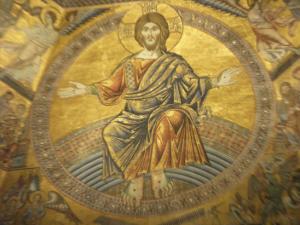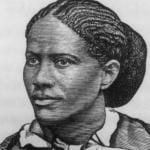
I was once on my way to an important meeting, when one of children asked if I could help them with something. I stopped and did, because even though there were Big Things to do, the “little” things counted. As a Christian, I could not even be sure of my judgment and that the “little thing” was really small!
The terrible things being done by the Communist China are not easy to see, but will rank as some of the worst crimes against humanity in human history. Compared to the destruction of entire peoples, think of Tibet, little will seem as important in relative terms. God, however, also judges the individual (Have mercy!) and what we think of as a small injustice may be great, very great. When our hearts are warmed toward justice, then we begin to hurt for every injustice even if society calls that injustice “normal.”
Imagine being a slave who has fought for her freedom. She dedicates her live to ending race based slavery and works with that great (though imperfect!) American Frederick Douglass to gain justice. The temptation would be to forget everything else. The cause was so just and the evil so huge that a person might feel justified in thinking they had not time for anything else. Yet a poet in Frederick Douglass’s paper was better than this, because a heart for justice kindles a warmth toward justice for all. Opposed to this is the monomaniac: a person whose thoughts are confined to one idea. The idea may be a good one, but wrenched out context, the monomaniac becomes maniacal. He can end up justifying injustice in the pursuit of justice, like someone who is pro-life on abortion, which is proper, but does not care about concentration camps in China.
The monomaniac on an issue (abolition! only abolition!) has failed to capture the heart of the abolitionist movement: love of justice. Too often monomania, the obsession with one issue, covers for something else gone wrong. The opponent of slavery who is content with abusive factories in the North was missing something vital and one has to ask: “How?”
A brilliant poet, “Ethiop,” forced these issues on me as I prepared for class next week at The College.
She** did not forget “small” injustices. She took the time to help “the beggar girl.” She remembers her. She echoes Edgar Allen Poe’s “Raven.” The poet compares favorably to Poe, because she looks outward while Poe runs the risk of imploding into his own darkness. She sees a larger justice than even abolition, economic justice, while Poe labors to keep from going mad. The Christian abolitionist here will not allow the death of a beggar child to pass without mention, because of monomania. Why? Like Reverend King, she knows that any injustice allowed, tolerated, is the foundation of what allows the greater injustices.
We cannot go to end a great injustice while ignoring the “little” injustice we see along the way.
So help us God.
The Beggar Girl
By Ethiop [Brooklyn, New York]
Frederick Douglass’ Paper, March 17, 1854
As I went from home one wintry morning,
The winds were fierce, and it was storming,
A little stranger, wan and wild,
Cried, Give! Oh, give a needy child!
I, without grudging, without hoarding,
Gave what ere my purse affording—
Received in turn a mournful smile, ’
Twas the thanks of a beggar child.
I, soon amidst the business moving,
Buying, selling, praising, proving,
As is the custom of the world,
Forgot the little beggar girl.
At night, I sat by my fire, weary;
All without was dreary, dreary;
The bleak winds in a fearful whirl,
And then recurred the beggar girl.
Fond sleep and heavy eyes refusing,
I fell into a solemn musing,
Over the coldness of the world,
And trials of the beggar girl.
My thoughts still onward, onward fleeting,
Sorrows, suffering, buffets meeting,
In their swift flight round the world,
They’d meet anon the beggar girl.
As deeper in my revery falling,
Lo! a voice seemed to me calling,
Oh! oh! is this a friendless world?
’Twas like the little beggar girl.
Though yet into my revery seeming,
Now in truth was dreaming—dreaming
About the cold and heartless world,
And dream’d I saw the beggar girl.
Next morn, beneath my window lonely,
Went a horse and driver only,
Unnoticed by the world—
They said it bore the beggar girl.
When wintry winds my cot is rocking,
And storm at my door is knocking,
I then reflect upon the world,
And ne’er forget the beggar girl.*
————-
* Although the content of this poem is entirely original, these verses are loosely modeled after Edgar Allan Poe’s 1845 poem, The Raven. Voices Beyond Bondage . NewSouth Books. Kindle Edition. (The note is from the text.)
** I do not know the sex of the writer, but have chosen “she” as a placeholder.












